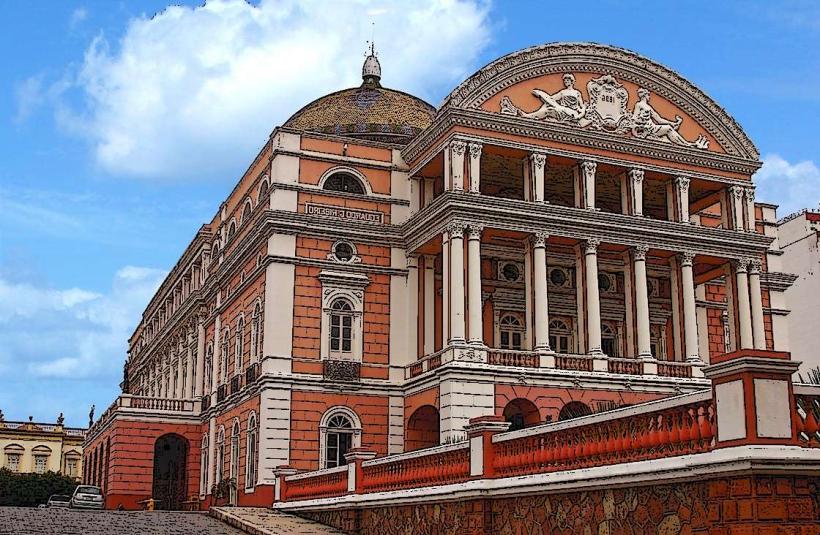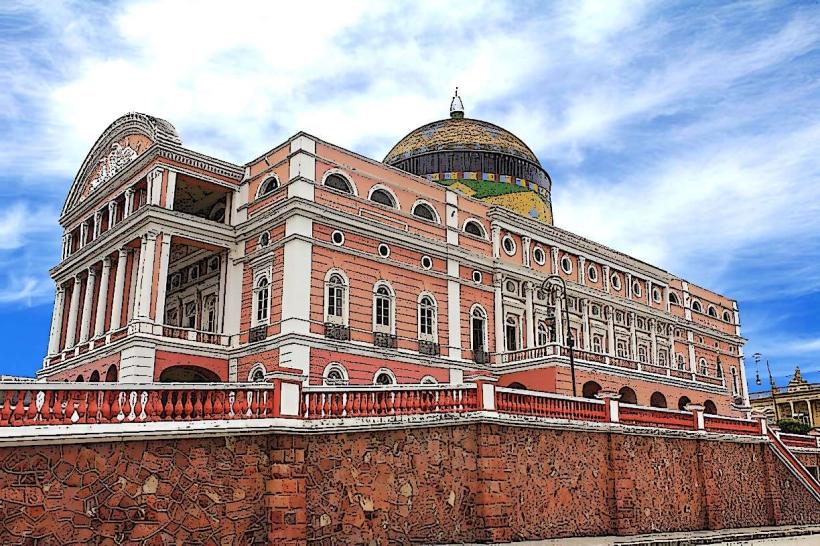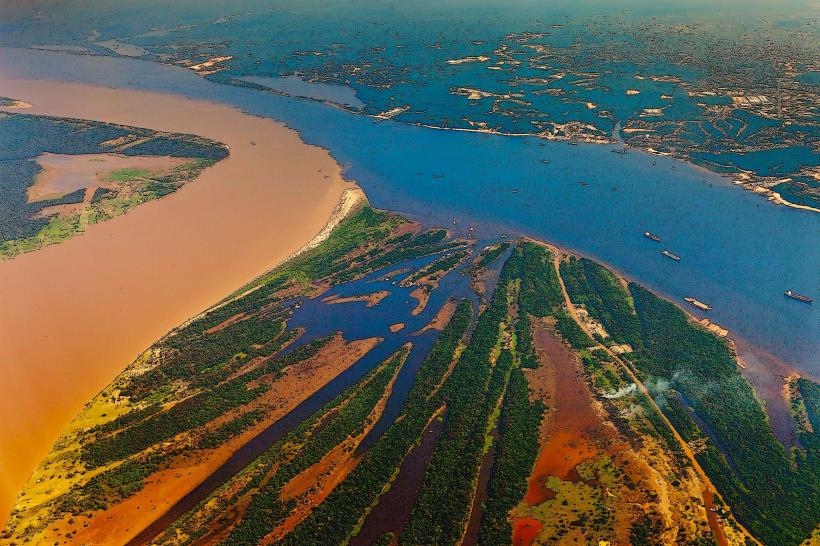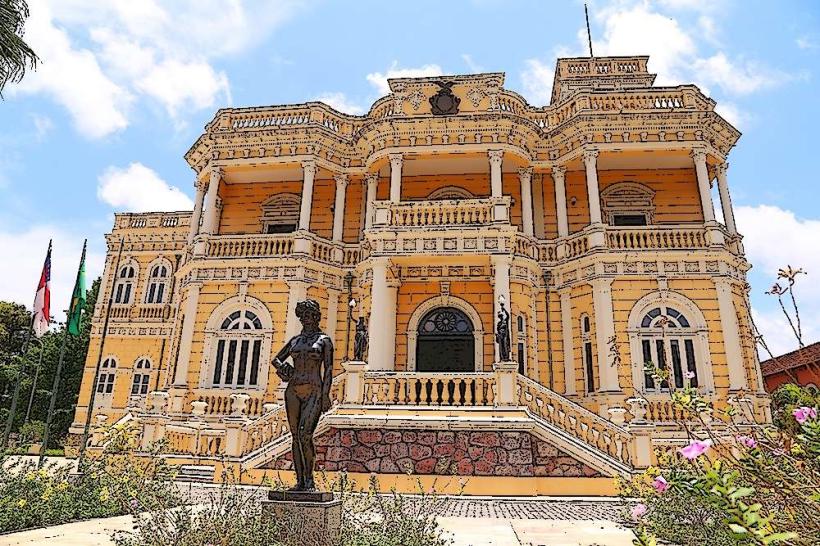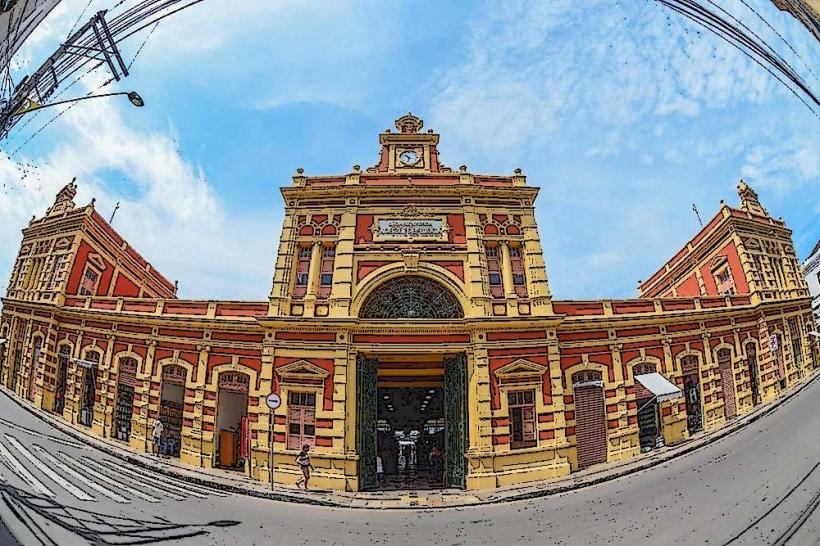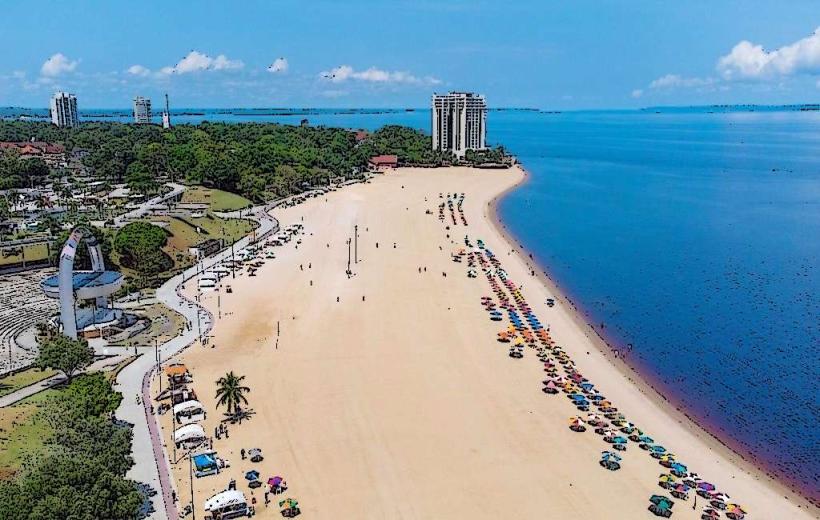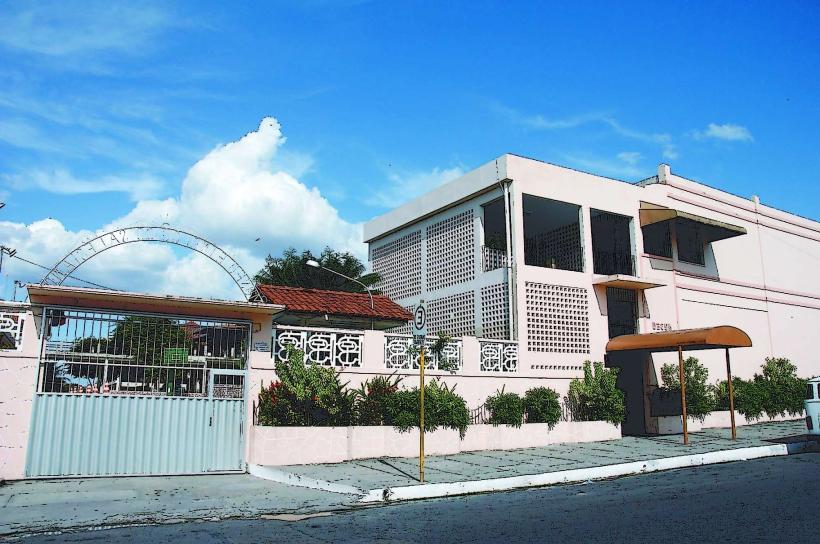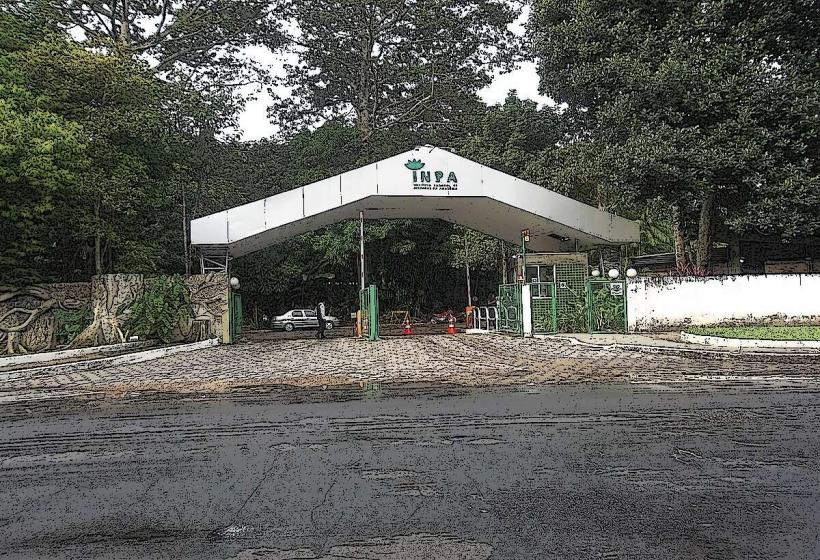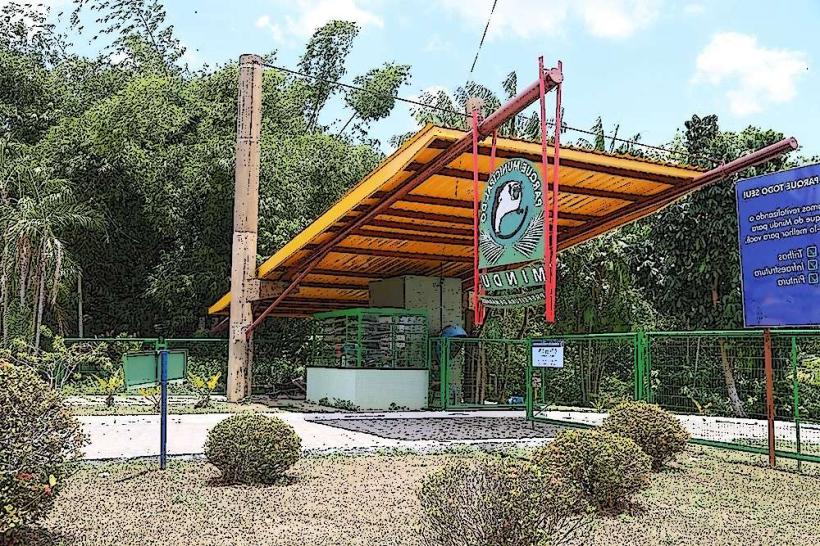Information
City: ManausCountry: Brazil
Continent: South America
Manaus, Brazil, South America
Manaus serves as the economic and logistical hub of the Amazon Basin and is the capital of the state of Amazonas. It is situated at the confluence of the Negro and Solimões rivers, positioned in the heart of the world's largest rainforest.
Historical Timeline
The city was founded in 1669 as the Fort of São José do Rio Negro. Its primary era of global significance was the Rubber Boom (1879–1912), which transformed Manaus into one of the wealthiest cities in the world, earning it the moniker "Paris of the Tropics." Following the collapse of the rubber market, the city faced decline until the 1967 establishment of the Free Economic Zone of Manaus (ZFM). This industrial tax-haven status remains the city's modern economic engine, housing major electronics and motorcycle manufacturing plants.
Demographics & Population
The metropolitan population is approximately 2.3 million. The demographic is characterized by a high degree of integration between Indigenous, European, and Northeastern Brazilian migrant ancestries. Manaus has one of the highest proportions of self-identified Indigenous residents among large Brazilian cities. The median age is 28.6 years.
Urban Layout & Key Districts
The city is restricted by the surrounding jungle and river systems, leading to a sprawling urban form.
Centro: The historical core containing the port and rubber-era architecture.
Adrianópolis: The most affluent residential district with high-rise developments.
Ponta Negra: An upscale waterfront neighborhood with a river beach and luxury hotels.
Industrial District (Distrito Industrial): The specialized zone housing multinational factories southeast of the center.
Top City Landmarks
Amazon Theatre (Teatro Amazonas): A Renaissance-style opera house built with European materials during the rubber boom.
Meeting of Waters (Encontro das Águas): The 6 km stretch where the dark Rio Negro and sandy Solimões flow side-by-side without mixing.
Adolpho Lisboa Municipal Market: An Art Nouveau structure based on the former Les Halles in Paris.
MUSA (Museum of the Amazon): Featuring a 42-meter observation tower overlooking the primary forest.
Palácio Rio Negro: A former rubber baron's residence and government seat.
Transportation Network
Movement is defined by the city's isolation; there are no paved roads connecting Manaus to the rest of Brazil's major southern cities (the BR-319 remains partially unpaved and seasonally impassable).
Water: The Port of Manaus is the largest floating port in the world. Boats (gaiolas) are the primary regional transport for people and cargo.
Air: Eduardo Gomes International Airport (MAO) is the city's vital link to the outside world.
Road: Uber and 99 are fully operational. Traffic is dense in the Centro and on avenues leading to the Industrial District.
Safety & "Red Zones"
Manaus has a significant crime rate related to its position as a transit point for regional trade.
Red Zones: Avoid the port area and the historic center after dark. Peripheral northern and eastern zones (e.g., Jorge Teixeira) have high levels of gang activity.
Precautions: Be vigilant against petty theft in crowded markets. Only use official tour operators for jungle excursions.
Digital & Financial Infrastructure
Average internet speed is 85 Mbps, having significantly improved with recent fiber-optic links laid along the riverbeds. 5G is available in central and affluent wards. The Pix system is universal. Card acceptance is 100% in businesses, though cash is preferred for small riverboat transactions.
Climate & Air Quality
Equatorial climate (hot and humid). Temperatures range from 24°C to 33°C year-round. Humidity levels rarely drop below 80%. Air quality is generally high but can be severely degraded during the "burning season" (August–October) due to forest fires in the wider region.
Culture & Social Norms
The local culture is a synthesis of Amazonian traditions and modern industrial life. Tipping is a 10% service charge. A unique social norm is the consumption of Açaí and Tucumã as dietary staples. The Boi-Bumbá festival culture is highly influential, peaking in June.
Accommodation Zones
Adrianópolis / Vieiralves: Recommended for business and proximity to high-end dining.
Ponta Negra: Recommended for leisure, river views, and safety.
Local Cost Index
1 Espresso: 8.50 BRL ($1.55)
1 Standard Lunch (Tacacá): 30.00 BRL ($5.45)
1 Taxi/Uber (5km): 25.00 BRL ($4.55)
Nearby Day Trips
Meeting of Waters: Accessible by boat from the Porto de Manaus.
Presidente Figueiredo: Known as the "Land of Waterfalls" (107 km north).
Anavilhanas Archipelago: One of the world's largest freshwater archipelagos (100 km by boat/road).
Facts & Legends
A prominent legend is the Boto Cor-de-Rosa, a pink river dolphin that supposedly transforms into a handsome man to seduce women. A verified historical oddity is that the Teatro Amazonas features 36,000 ceramic tiles on its dome in the colors of the Brazilian flag, all imported from Alsace, France. Another fact: Manaus is the only city in the world where you can find a major industrial hub for high-tech electronics in the middle of a primary tropical rainforest.

